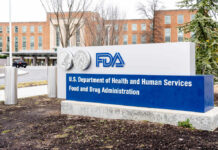
Switzerland is taking proactive steps to ensure the safety of its citizens in the event of a disaster at one of its nuclear power plants. The country has initiated a mass distribution of iodine tablets to millions of Swiss residents, an essential component of its disaster preparedness plan.
The pill box seen in the image below arrived in the Postal Mail to every home in Switzerland today. The accompanying letter tells citizens "Iodine tablets, to be taken at the request of the authorities in the event of radioactive fallout." pic.twitter.com/nxyPj7Fl00
— Truthwins (@ultrafreedom777) October 20, 2023
Back in 2014, approximately 4.6 million potassium iodide tablets were dispatched. These tablets have a lifespan of 10 years, and many are now nearing expiration. The distribution targets all individuals residing within a 50-kilometer radius of any of Switzerland’s three operational nuclear power plants, which encompasses roughly 4 million people.
The decrease in tablet distribution since 2014 can be attributed to the closure of one of Switzerland’s nuclear power plants in Mühleberg. Nevertheless, the Swiss government maintains its commitment to safeguarding its populace, ensuring that everyone in the vicinity of a nuclear plant receives surplus iodine tablets, which can be shared with those who might need them.
Switzerland has procured a sufficient quantity of iodine tablets to cater to the entire national population, with local authorities responsible for the management of supplies in regions beyond the 50-kilometer radius. In an effort to bolster preparedness, businesses and schools are scheduled to receive their supplies of iodine tablets in 2024.
The initiative spans 779 Swiss municipalities. The primary purpose of these iodine tablets is to mitigate the risk of thyroid cancer following radiation exposure. Switzerland’s Federal Office of Public Health has emphasized their effectiveness, particularly for individuals under the age of 45, extending protection even to children as young as two months old.
However, Swiss officials caution residents against taking these tablets preemptively. The consumption of iodine tablets should only occur under the guidance of government authorities from the National Emergency Operations, in the event of a nuclear emergency. Switzerland has also devised an eco-friendly approach to deal with the expiring tablets.
The government plans to recycle the old tablets to recover the iodine content within them.
This ambitious prevention effort comes at a cost of approximately 34 million Swiss francs. Notably, a third of this financial burden is shouldered by the operators of the nuclear power plants, a testament to Switzerland’s commitment to both the safety and well-being of its citizens.













